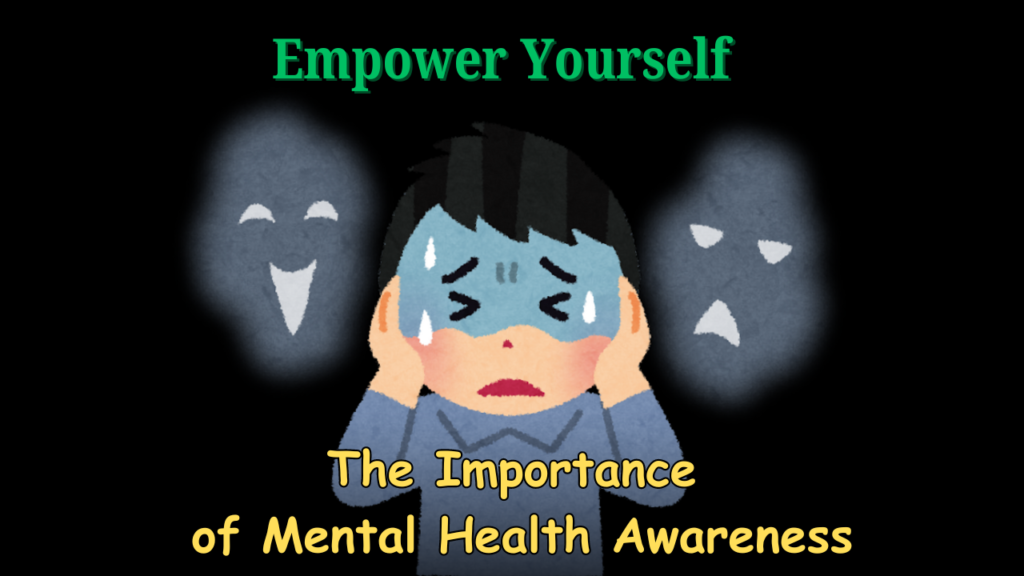In a world that constantly demands our attention and energy, mental health often takes a back seat. Yet, understanding and prioritizing mental health is crucial not just for individual well-being, but for the health of our communities as a whole. In this blog, we’ll explore why mental health awareness matters, common mental health issues, and practical steps you can take to empower yourself and others.


Why Mental Health Awareness Matters
Mental health awareness involves recognizing the importance of mental well-being and understanding its impact on our lives. Here are some key reasons why this is necessary:
Reduction of Stigma: Mental health issues have historically been stigmatized, leading many to suffer in silence. By promoting awareness, we can create an environment where individuals feel safe to talk about their struggles without fear of judgment.
Early Intervention: Recognizing the signs of mental health issues can lead to early intervention, which is often crucial for effective treatment. Awareness can empower individuals to seek help sooner, improving their chances of recovery.
Informed Communities: When communities understand mental health, they can better support those in need. This can lead to stronger social networks, increased compassion, and more resources dedicated to mental health care.
Personal Empowerment: Knowledge is power. Understanding mental health equips individuals with the tools they need to manage their own mental well-being and support others.
Common Mental Health Issues

Mental health encompasses a wide range of conditions. Here are some of the most common issues people face:
Anxiety Disorders: These include generalized anxiety disorder, panic disorder, and social anxiety disorder. Symptoms may include excessive worry, restlessness, and physical symptoms like rapid heartbeat.
Depression: Characterized by persistent sadness, loss of interest in activities, and feelings of hopelessness, depression can affect anyone, regardless of age or background.
Bipolar Disorder: This condition involves extreme mood swings, including emotional highs (mania) and lows (depression), impacting daily functioning.
Obsessive-Compulsive Disorder (OCD): OCD is marked by unwanted, intrusive thoughts (obsessions) and repetitive behaviors (compulsions) aimed at reducing anxiety.
Post-Traumatic Stress Disorder (PTSD): This disorder can occur after experiencing or witnessing a traumatic event. Symptoms may include flashbacks, avoidance behaviors, and heightened anxiety.

Empowering Yourself: Practical Steps for Mental Health
Taking charge of your mental health is empowering. Here are some practical steps you can implement in your daily life:
Educate Yourself: Learn about mental health conditions and their signs. The more you know, the better equipped you’ll be to recognize when you or someone else might need help.
Practice Self-Care: Make self-care a priority. This can include activities that promote relaxation, such as reading, gardening, or enjoying a warm bath. Regular exercise and a balanced diet also play significant roles in mental health.
Establish a Support Network: Surround yourself with supportive friends and family. Sharing your thoughts and feelings with trusted individuals can alleviate burdens and foster connection.
Mindfulness and Meditation: Incorporating mindfulness practices into your routine can help reduce stress and enhance emotional regulation. Simple techniques like deep breathing or guided meditation can be beneficial.
Seek Professional Help: Don’t hesitate to reach out to a therapist, counselor, or support group if you’re struggling. Professional help can provide guidance and strategies tailored to your needs.
Engage in Community Activities: Volunteering or participating in community events can enhance your sense of belonging and purpose, which are crucial for mental well-being.

Creating a Culture of Awareness

As individuals, we can contribute to a culture of mental health awareness by:
Starting Conversations: Openly discussing mental health can encourage others to share their experiences and seek help.
Advocating for Resources: Support local and national mental health initiatives, whether through volunteering, donations, or simply spreading the word.
Being Compassionate: Show empathy towards those struggling with mental health issues. Listening and validating their experiences can make a significant difference.
Final Thoughts
Mental health is an integral part of our overall well-being, and raising awareness about it is essential for fostering a supportive and understanding environment. By empowering ourselves with knowledge, recognizing the signs of mental health issues, and promoting open conversations, we can help break down the stigma that often surrounds mental health challenges. Remember, it’s okay to seek help, and taking care of your mental health is just as important as taking care of your physical health. Together, we can create a culture of empathy, support, and resilience—one that empowers everyone to live their best lives. Your journey towards mental well-being starts with awareness; take that first step today.
